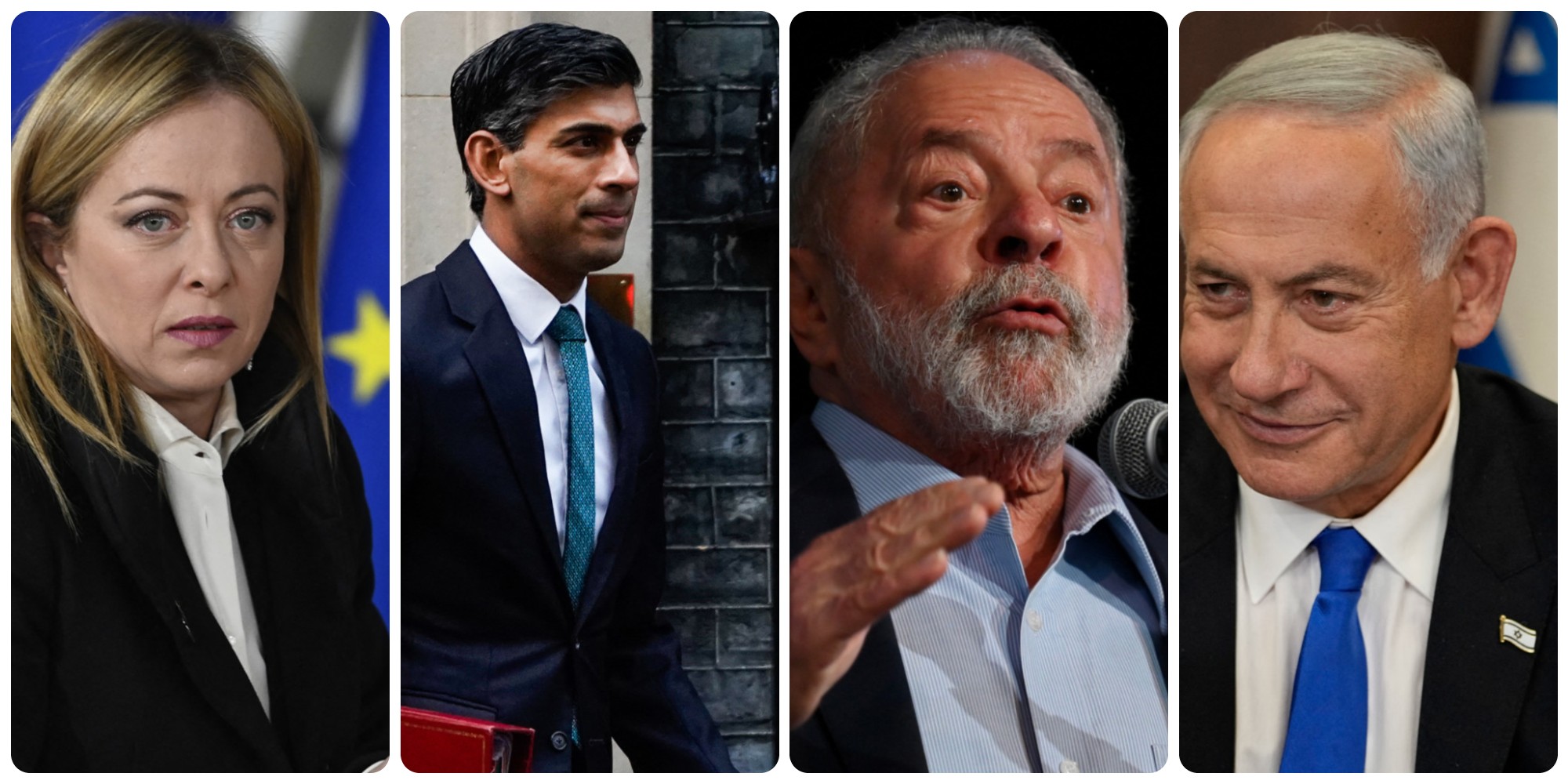Romain Rouillard 5:25 p.m., December 30, 2022, modified at 5:32 p.m., December 30, 2022
After Joe Biden, Naftali Bennett and Olaf Scholz in 2021, the year 2022 has in turn seen new leaders take control of their respective countries.
Brazil, Italy, United Kingdom... Europe 1 gives an overview of the various elections that took place this year in the four corners of the globe.
Return to grace, ephemeral passage or revelation in the eyes of the general public.
In 2022, new leaders have been elected all over the world, in very different contexts.
Each appears as the mirror of a social, economic and political reality in their country, but not all of them have the free rein to carry out their function.
Europe 1 offers you an overview of the four corners of the planet.
Italy: Giorgia Meloni, a historic first
The Italian ballot gave birth to a result that is both historic and challenging.
For the first time, a woman will head a government on the other side of the Alps.
However, Giorgia Meloni (45) is also described as a "post-fascist", leader of a party - Fratelli d'Italia - created after the Second World War on the ashes of a certain Benito Mussolini.
Like Eric Zemmour in France, she does not hesitate to pin the "ethnic replacement" of which Italy would be a victim while regularly scratching the "LGBT lobbies".
>>
READ ALSO
- First meeting between Italian Giorgia Meloni and European leaders in Brussels
The new strong woman of Rome very quickly set the tone of her policy by being inflexible on the question of the Viking Ocean.
Last November, this migrant boat finally docked at the port of Toulon after Rome's categorical refusal to welcome the 234 people who were there.
Enough to trigger the ire of Gérald Darmanin who promised to "draw the consequences" of the Italian attitude on the "bilateral relations" between the two countries.
Atmosphere.
United Kingdom: Liz Truss, a little tour and then leaves
She too made history this year.
But will not figure in its most glorious pages.
Taking advantage of the resignation of Boris Johnson, weakened by several scandals within his government, Liz Truss was given the keys to 10 Downing Street on September 6th.
A prestigious function that she will occupy for … 44 days, making her the most ephemeral Prime Minister in the contemporary history of the United Kingdom.
A resounding fiasco born, among other things, of a vast ultra-liberal project of massive reduction of taxes and expenses which sowed panic within the financial markets.
Especially since the new leader had given no guarantee of funding for this ambitious reform.
Increasingly isolated within the conservative apparatus, she had no choice but to resign on October 20.
United Kingdom: Rishi Sunak, a promising start then trouble
After the Liz Truss episode, the UK is back to where it started and the Conservative party is setting its sights on Rishi Sunak, former Chancellor of the Exchequer under Boris Johnson.
If he managed, at first, to put out the fire within the party and to calm the markets, his attitude in the face of growing social discontent across the Channel is puzzling.
The new head of government refuses to open negotiations with the unions and struggles to get rid of the image of a technocrat out of touch with reality.
So much so that his future at 10 Downing Street is already dotted.
Brazil: Lula, a resounding comeback
He is back.
More than a decade after the end of his first term, the historic figure of the Labor Party once again takes control of Brazil after a fierce fight with Jair Bolsonaro, the outgoing president.
At the antipodes of his far-right predecessor, beaten despite a score of 49.1%, the 77-year-old leader has his work cut out for him in a country divided as rarely.
>>
READ ALSO
- Brazil: economy, society, security ... Lula's program scrutinized
On the international scene, he will have to restore credit to Brazil, in particular on the environmental question rather neglected by Bolsonaro.
He will also have to tackle the poverty that plagues his country and the defense of ethnic minorities, particularly hard hit after four years of Bolsonarism.
Israel: Yaïr Lapid-Benyamin Netanyahu, crossed destinies
In March 2021, Yaïr Lapid was tasked by President Reuven Rivlin with forming a government after the failure of Benyamin Netanyahu who had failed to gather enough support.
On the contrary, Lapid achieves his ends and then becomes alternate Prime Minister while Naftali Bennett takes the head of the government.
But due to tensions emerging within the coalition, the pair decided to dissolve the Knesset (the Israeli Parliament) and thus provoke new legislative elections.
Under an agreement between the two men, providing for a rotation in the event of dissolution, Yaïr Lapid takes the post of Prime Minister on July 1, 2022. A consecration of short duration since at the end of a new legislative election last November , his political party failed to retain a majority in the Knesset.
A setback that benefits a certain Benyamin Netanyahu, whose party wins 64 of the 120 seats in Parliament.
After validation of his government, he was sworn in on Thursday, thus resuming the throne he had left a little over a year ago.

